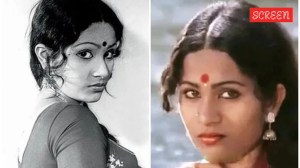Meet exposes chinks in Modi religion Act
The Gujarat government is in for a major embarrassment with the Vishwa Boudh Sangh (VBS) planning to organise a mass conversion on June 15, ...

The Gujarat government is in for a major embarrassment with the Vishwa Boudh Sangh (VBS) planning to organise a mass conversion on June 15, announcing that around one lakh Dalits would embrace Buddhism that day.
The VBS move comes close on the heels of the state government’s Freedom of Religion Act that seeks to prevent conversions and which, the Narendra Modi regime claims, helped it to its recent bypoll victory. Buddhism and Jainism — covered in the Hindu Code Bill as offshoots of Hinduism — are out of the Act’s purview.
‘‘There is resentment among tribals against conversions,’’ Minister of State for Home Amit Shah had claimed explaining the party’s victory in the south Gujarat constituency of Songarh. But he was at a loss to explain the massive turnout predicted for the June 15 function. ‘‘For us it’s a matter of law and order and not conversion,’’ he said, adding that the turnout wouldn’t be high.
While the VBS’s ability to mobilise one lakh Dalits for conversion to Buddhism does seem suspect, the wary government has activated its intelligence apparatus to watch the Sangh’s activities in the run-up to the programme at Vadodara.
The VBS, which plans to inform the Vadodara district magistrate about its proposed programme by submitting 55,000 applications, has been campaigning against Hinduism at its meetings in different parts of Gujarat.
‘‘We are not offering any bribe — only the promise of self-worth,’’ says VBS general secretary Bhante Sanghpriya, who moved to Gujarat over a year ago and claims to have been networking for the programme since then.
Speakers at the Sangh’s meetings tell Dalits that after Godhra, ‘‘they handed over swords and trishuls to us, saying Hindus are in danger — it’s only at such times we are considered Hindus. Otherwise, we aren’t allowed to enter temples or drink water from their wells.’’ They highlight how Buddhism is free from rituals, and hence cheap and simple to practice.
Referring to the disruption caused by the VHP at a press conference in Vadodara, Bhante said, ‘‘They call Buddha the ninth incarnation of Vishnu and yet they are against Buddhism. They don’t break bread with us, nor do they marry Dalits.’’
Deepak Gohil, who organised two such meetings in Jamnagar last Sunday, says 400 people had pledged to convert to Buddhism. Gohil also alleges that he was denied a ticket by the BJP in the Assembly election because he is a Dalit.
‘‘Hindus don’t accept us and Muslims don’t trust us because we were made to take up arms against them in the riots. We don’t want to convert to Islam or Christianity. But then we aren’t allowed to live like Hindus either,’’ he says.
Gohil also informed that at least half a dozen meetings are being planned in Saurashtra to encourage more people to attend the June 15 meeting in Vadodara.
Valjibhai Patel of Centre for Social Justice says: ‘‘How many actually convert is not important — the turnout is. It all depends on the kind of campaign they have launched.’’ He points out that programmes organised for the Dalit cause have been successful in the past.
Irrespective of the June 15 turnout, conversion has become an issue in Gujarat four years after the attacks on Christian prayer halls in the Dangs.
The VHP, meanwhile, has organised a meeting in Sarvar Teti village of Kaprada taluka in south Gujarat district of Valsad to protest against alleged conversions by missionaries while the VHP’s Jaideep Patel is visiting Tankvasna village in Patan where the police allegedly carried out a survey of Christians.



- 01
- 02
- 03
- 04
- 05




























